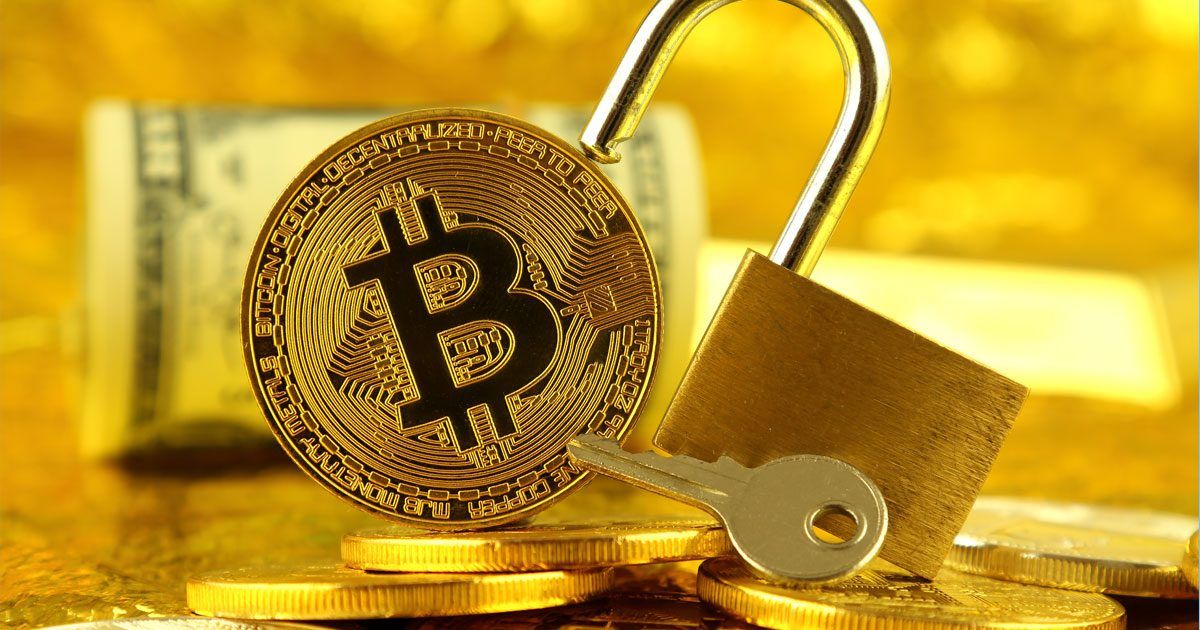In the rapidly evolving world of cryptocurrency, choosing the right exchange is crucial for both novice and experienced traders. This article presents a comprehensive guide to the best crypto exchanges in the U.S., focusing on aspects such as security, fees, user experience, and more. With extensive research and consideration of various factors, we’ve distilled our findings to help you navigate the complex landscape of digital asset trading platforms.
Key Takeaways
- Coinbase stands out as the best exchange for beginners due to its user-friendly interface and robust security measures.
- Binance.US offers the most competitive fees, making it an attractive choice for cost-conscious traders.
- Kraken is highly recommended for advanced traders, thanks to its comprehensive suite of trading tools and features.
- Bisq is recognized as the best decentralized exchange, appealing to those seeking privacy and autonomy in their trading activities.
- Pionex.US and Public are emerging contenders, with Pionex.US being noted for automated trading and Public for its $0 commission structure.
Comprehensive Guide to the Best Crypto Exchanges in the U.S.


Criteria for Ranking: Security, Fees, and User Experience
When evaluating the best U.S. crypto exchanges, we prioritize a trifecta of critical factors: security, fees, and user experience. Security is paramount, with top exchanges boasting features like two-factor authentication, cold storage, and insurance coverage. Fees are a close second, as they directly impact your investment’s profitability. User experience encompasses the ease of use, customer support, and educational resources provided.
Our analysis is grounded in a comprehensive approach, considering both quantitative metrics and qualitative insights to rank each platform.
Here’s a snapshot of what we consider for each criterion:
- Security: Look for 2FA, cold wallets, insurance, and other cybersecurity measures.
- Fees: Assess trading, withdrawal, and other associated costs.
- User Experience: Evaluate the platform’s interface, support, and educational content.
While some platforms may excel in one area, the best exchanges strike a balance, ensuring a secure, cost-effective, and user-friendly trading environment.
Spotlight on Top Exchanges: Coinbase, Kraken, and Binance.US
When it comes to the top echelon of US crypto exchanges, Coinbase, Kraken, and Binance.US stand out for their distinctive features and services. Coinbase is renowned for its user-friendly interface, making it the go-to platform for beginners. Kraken appeals to advanced traders with its sophisticated trading tools, while Binance.US is celebrated for its low fee structure.
| Exchange | Best For | Notable Feature |
|---|---|---|
| Coinbase | Beginners | User-friendly interface |
| Kraken | Advanced Traders | Sophisticated trading tools |
| Binance.US | Low Fees | Competitive pricing |
Each of these platforms has carved out a niche in the market, ensuring that there’s a suitable option for every type of investor, from novices to seasoned traders.
It’s crucial to consider your individual needs and trading style when selecting an exchange. While Coinbase offers ease of use, Kraken provides depth for those looking to dive deeper into crypto trading strategies. Binance.US, on the other hand, is a cost-effective choice for those mindful of fees.
Emerging Contenders: Pionex.US and Public
In the dynamic world of U.S. crypto exchanges, Pionex.US stands out for its unique offering of automated trading bots, designed to simplify the trading process for both novices and seasoned investors. With a suite of 11 bots, users can engage in strategies such as dollar-cost averaging or portfolio rebalancing without constant market monitoring.
Public, on the other hand, is making strides by integrating cryptocurrency execution and custody services through a partnership with Apex Crypto LLC. This collaboration ensures a seamless trading experience on Public’s platforms, catering to a growing demographic of crypto traders.
Both Pionex.US and Public are reshaping the landscape of cryptocurrency trading in the U.S. by focusing on user-friendly features and innovative partnerships.
Here’s a quick comparison of what these emerging contenders offer:
- Pionex.US: Automated trading with 11 bots, competitive fees, and robust security features including multi-signature and a security deposit system.
- Public: Streamlined trading experience through Apex Crypto LLC, with a focus on accessibility and understanding the risks involved in crypto trading.
Navigating the Landscape of U.S. Crypto Exchanges


Understanding Different Types of Exchanges: Centralized vs. Decentralized
In the realm of cryptocurrency trading, exchanges are pivotal. They are broadly categorized into two types: centralized (CEX) and decentralized (DEX). Centralized exchanges are akin to traditional stock exchanges, where a single entity operates the platform, often providing higher liquidity and a wider array of trading pairs. In contrast, decentralized exchanges operate without a central authority, relying on smart contracts and peer-to-peer transactions.
-
Centralized Exchanges (CEX):
- Operated by a private company
- Higher trade volumes and liquidity
- More trading pairs available
- Subject to regulation and licensing
-
Decentralized Exchanges (DEX):
- No central authority; operated by smart contracts
- Trades are directly between users
- Not regulated in the traditional sense
- Requires connecting a personal crypto wallet
While centralized exchanges offer convenience and ease of use, decentralized platforms appeal to those seeking autonomy and direct control over their trades. The choice between CEX and DEX depends on individual preferences for security, control, and regulatory oversight.
Factors to Consider When Choosing an Exchange
Selecting the right cryptocurrency exchange is a critical step for any trader or investor. Security should be your top priority, ensuring the exchange employs robust measures like two-factor authentication and cold storage. Additionally, consider the variety of cryptocurrencies offered and whether they align with your investment goals.
- Geographic Restrictions: Verify the exchange’s availability in your region.
- Customer Support: Assess the quality and responsiveness of support channels.
- Market Reputation: Read user reviews for firsthand insights.
When evaluating exchanges, it’s essential to weigh factors such as trading volumes and educational resources. These elements can significantly influence your trading experience and success rate.
Remember, the 2023 Buyer’s Guide emphasizes the importance of regulatory compliance and user interface, alongside the security and variety of cryptocurrencies, as key criteria in your decision-making process. Keep an eye on future trends that may shape the industry, ensuring your chosen platform can adapt and thrive in the evolving crypto landscape.
How to Get Started with Your Chosen Crypto Exchange
Embarking on your cryptocurrency journey begins with selecting a suitable exchange and setting up your account. The process is generally straightforward and user-friendly, tailored to assist even those new to the digital currency world.
To start, navigate to the exchange’s official website and opt for the ‘Sign Up’ or ‘Start Investing’ option. You’ll be prompted to enter basic information such as your username, email address, and a secure password.
Following your initial registration, you’ll need to verify your identity to comply with regulatory requirements. This step is crucial for ensuring the security of your account and the exchange.
Once verified, you can deposit funds into your account. Payment methods typically include bank transfers, credit or debit cards, among others. Here’s a simple breakdown of the minimum deposit requirements for some beginner-friendly exchanges:
| Exchange | Minimum Deposit |
|---|---|
| Coinbase | $50 |
| eToro | $10 |
| Kraken | $10 |
After funding your account, you’re ready to explore and invest in various cryptocurrencies. Use the platform’s search function to find specific coins, and with a simple click on ‘Invest’ or ‘Open Trade’, you can initiate your first purchase.
Security and Trust: Identifying the Safest U.S. Crypto Exchanges


In-Depth Analysis of Security Protocols
When selecting a crypto exchange, the security of digital assets is paramount. Exchanges must employ a range of cybersecurity features to protect users’ funds and personal information. These include two-factor authentication (2FA), cold storage solutions, and advanced encryption methods.
Exchanges also engage in proactive security measures such as regular penetration testing, bug bounty programs, and third-party audits. This ensures that platforms remain resilient against potential cyber threats.
It’s crucial for users to choose exchanges that not only implement rigorous security protocols but also provide insurance options to safeguard against potential losses.
Furthermore, the presence of security measures like multi-signature vaults and anti-DDoS modules can significantly reduce the risk of security breaches. Users should verify the security features listed on an exchange’s website and look for additional coverage such as SIPC insurance or other cybercrime insurance policies.
User Reviews and Trust Ratings
When venturing into the world of cryptocurrency exchanges, user reviews and trust ratings are invaluable resources for gauging reliability and customer satisfaction. Websites dedicated to crypto apps, mining, trading, exchanges, and regulations often feature comprehensive reviews that highlight the top exchanges for safe trading. These reviews can provide insights into the user experience, highlighting both the strengths and weaknesses of each platform.
For instance, a high user score on a review site can indicate a positive reception from the community, while detailed pros and cons lists offer a snapshot of what to expect. Below is a summarized table of user scores and notable points for a selection of popular exchanges:
| Exchange | User Score | Pros | Cons |
|---|---|---|---|
| Gate.io | 9.6 | Large altcoin support, high security, copy trading | Mobile app issues, low liquidity in some coins |
It’s important to remember that while user reviews can guide you, they should not be the sole factor in your decision-making process. Considerations for choosing a secure exchange platform should also include an analysis of security features, fee structures, and regulatory compliance.
Comparing the Security Features of Top Exchanges
When assessing the safety of cryptocurrency exchanges, it’s crucial to examine their security features meticulously. Top exchanges typically offer a range of protective measures to safeguard users’ assets and personal information. For instance, two-factor authentication (2FA), cold storage solutions, and encryption are standard practices among reputable platforms.
In addition to these, some exchanges enhance security through advanced measures like biometric authentication, multi-signature vaults, and anti-DDoS modules. It’s advisable to review each exchange’s security offerings on their websites and through independent research reports. Moreover, exchanges backed by cybercrime insurance or the Securities Investor Protection Corporation (SIPC) provide an extra layer of trust and reassurance.
While no platform can guarantee absolute security, selecting an exchange with comprehensive and robust security protocols significantly reduces the risk of cyber threats.
Here’s a quick comparison of security features provided by some of the leading exchanges:
| Exchange | 2FA | Cold Storage | Encryption | Biometric Authentication | Multi-Sig Vaults | Anti-DDoS |
|---|---|---|---|---|---|---|
| Coinbase | Yes | Yes | Yes | Yes | Yes | Yes |
| Kraken | Yes | Yes | Yes | No | Yes | Yes |
| Binance.US | Yes | Yes | Yes | Yes | No | Yes |
Maximizing Value: Exchanges with the Lowest Fees and Best Perks


Fee Structures Explained: From Trading to Withdrawal Fees
Understanding the fee structure of a crypto exchange is crucial for traders looking to maximize their returns. Fees can significantly impact the profitability of trading activities, and they vary widely across different platforms. Here’s a brief overview of common fees you might encounter:
-
Deposit and Withdrawal Fees: While deposit fees are relatively rare, withdrawal fees are commonplace. These fees compensate for the transaction costs on the blockchain.
-
Trading Fees: These include maker and taker fees, which are based on whether your order adds or takes liquidity from the market.
-
Listing Fees: Relevant mainly to crypto projects, these fees are required to list a new token on an exchange.
-
Account Fees: Some exchanges charge regular account maintenance fees.
-
Network Fees: Paid to miners for processing transactions, these fees may be covered by the exchange or passed on to the user.
Transparency in fee structures is essential. Exchanges must clearly disclose their fees, allowing users to make informed decisions.
For example, a typical trading fee structure might look like this:
| Monthly Volume | Maker Fee | Taker Fee |
|---|---|---|
| < $25,000 | 0.4% | 0.4% |
| > $25,000 | 0.04% | 0.04% |
Credit card funding often carries higher fees compared to other methods like ACH transfers, which are usually free. It’s important to review an exchange’s fee schedule carefully to avoid any surprises.
Exclusive Benefits and Rewards Programs
In the competitive landscape of U.S. crypto exchanges, exclusive benefits and rewards programs are a key differentiator. Many platforms offer unique perks to attract and retain users, ranging from cash rewards to social impact investing options.
- Cash Rewards: Platforms like Public.com incentivize user engagement through cash rewards for activities such as referrals.
- Prepaid Visa Cards: Certain exchanges offer prepaid Visa cards that allow users to earn rewards, including up to 5% on purchases, and perks like free subscriptions and airport lounge access.
- Social Impact: Exchanges like Public.com enable users to invest in companies that align with their ethical or environmental values.
These rewards and benefits not only enhance the user experience but also provide additional value, making them an important consideration when choosing an exchange.
Comparative Overview of Fee Policies Across Exchanges
When evaluating the cost-effectiveness of various U.S. crypto exchanges, it’s crucial to consider the intricacies of their fee structures. Transparency in fee schedules is paramount, and exchanges must clearly communicate not only the fees themselves but also any conditions that may affect the final cost to the user.
| Exchange | Trading Fees | Deposit/Withdrawal Fees | Special Conditions |
|---|---|---|---|
| eToro | Flat 1% | None | – |
| Cash.app | Variable | Undisclosed | Small fee on trades |
Moreover, some platforms employ a tiered fee system based on trading volume or the role of the trader (maker vs. taker), which can significantly impact the overall expenses for active traders. It’s essential to dissect these components to understand the potential costs fully.
While the lowest net fee is a critical factor, one must also weigh the benefits of the platform’s features against the fees to determine the true value offered.
The Future of U.S. Crypto Exchanges: Trends and Predictions


The Rise of Automated Trading Platforms
The landscape of crypto exchanges is rapidly evolving, with automated trading platforms becoming increasingly popular among both novice and seasoned traders. These platforms leverage advanced algorithms to execute trades at optimal times, aiming to maximize profits and minimize risks.
- Manual and automated trading options
- Competitive fees on all types of transactions
- Tutorials, live chat, and email customer support
Automated platforms like Pionex.US offer a variety of bots that are cloud-based, ensuring that trading strategies are executed without the need for constant monitoring by the user. This shift towards automation is not only about convenience but also about the efficiency and precision that these platforms bring to the trading experience.
The integration of user-friendly interfaces with powerful automated tools is transforming the way individuals interact with the crypto market, making it more accessible to a broader audience.
Regulatory Changes and Their Impact on Exchanges
The regulatory environment for US cryptocurrency exchanges is both complex and dynamic. Exchanges must navigate a web of federal and state regulations, including compliance with money transmitter laws and, in some cases, obtaining specific licenses like New York’s BitLicense. As the digital currency revolution gains momentum, the importance of these platforms in facilitating transactions becomes ever more critical.
- Compliance with Federal and State Laws: Exchanges must adhere to various regulations, including anti-money laundering (AML) and know your customer (KYC) requirements.
- Licensing Requirements: Certain states have additional licensing requirements, such as the BitLicense in New York, which is mandatory for exchanges serving its residents.
- Adaptation to Regulatory Changes: Platforms must be prepared to adjust their operations in response to regulatory changes, which can include updates to compliance practices or the pursuit of new licenses.
The ability to adapt to the regulatory landscape is not just about survival but about positioning for future success. Exchanges that can effectively manage regulatory challenges are often seen as more trustworthy by users.
Looking ahead, exchanges are bracing for potential shifts in the regulatory framework, especially with anticipated licensing changes in 2024. Staying ahead of these changes is crucial for maintaining a competitive edge and ensuring user protection against market manipulation.
Innovations and New Features on the Horizon
As the crypto landscape evolves, exchanges are not just about trading anymore. They are becoming hubs for a variety of financial services, integrating features that extend beyond mere asset exchange. Expect to see more exchanges offering staking, lending, and even insurance services as they aim to become one-stop financial platforms.
- Staking services for earning rewards
- Lending platforms for passive income
- Insurance options to protect assets
- Integration of AI for market analysis
- Adoption of blockchain for enhanced security
The intersection of decentralized finance (DeFi) and regulatory frameworks is particularly intriguing. The DeFi trends for 2023 suggest a focus on balancing decentralization with government oversight, potentially leading to innovative compliance solutions.
The future of crypto exchanges will likely be shaped by their ability to adapt to regulatory changes while still providing cutting-edge features that enhance user experience and security.
Conclusion
Navigating the dynamic landscape of cryptocurrency exchanges in the U.S. can be a daunting task, but armed with the insights from our extensive research, you’re now equipped to make an informed decision. Whether you prioritize beginner-friendly interfaces, low transaction fees, robust security measures, or the availability of a wide range of digital assets, our top picks cater to a variety of needs and preferences. Remember to consider factors such as ease of use, fee structure, security protocols, and the types of cryptocurrencies offered when choosing the exchange that best aligns with your investment strategy. As the crypto market continues to evolve, staying informed and vigilant will be key to managing your digital assets effectively. Always perform your due diligence and consider your financial goals before diving into the world of cryptocurrency trading.
Frequently Asked Questions
What are the best crypto exchanges for beginners in the U.S.?
Coinbase is widely recommended as the best crypto exchange for beginners due to its user-friendly interface and educational resources.
Which U.S. crypto exchange offers the lowest fees?
Binance.US is known for offering low fees, making it an attractive option for cost-conscious traders.
What are the most secure crypto exchanges in the U.S.?
Exchanges such as eToro, Coinbase, Kraken, and Binance are often cited for their additional security features and are considered among the most trusted.
How do I choose the best crypto exchange for my needs?
Consider factors such as security, fees, user experience, and whether the exchange supports the cryptocurrencies you’re interested in trading.
What is the best decentralized crypto exchange in the U.S.?
Bisq is commonly referred to as the best decentralized exchange, offering a platform for peer-to-peer trading without a central authority.
Are there any $0 commission crypto exchanges in the U.S.?
Public is known as a platform that offers $0 commission trading, appealing to traders looking to maximize their investments.






